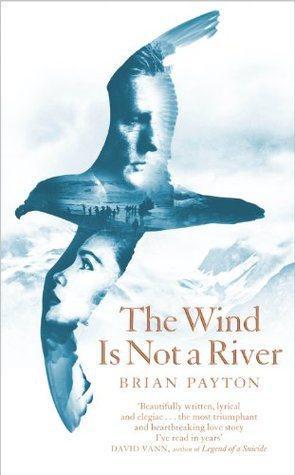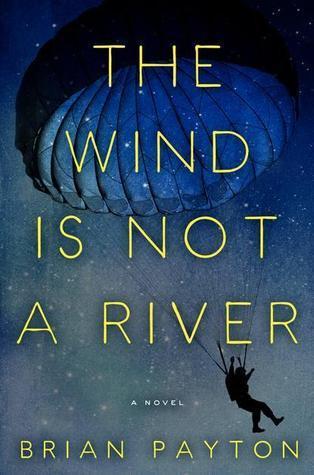I know, I know – another book about World War II. Another book about a separated couple, a woman lost… but that is all that The Wind is Not a River shares with the last book I reviewed, City of Women. That and the fact that they are both set in the same year, 1943, when the war was edging towards its end.

UK hardback cover. Image: goodreads.com
A brief summary: John Easley is a journalist, but has snuck onto a military flight to Alaska by pretending to be his brother, recently killed in action. He has been there before to report for National Geographic magazine, but journalists are no longer allowed up to Alaska due to secrecy around the movements of both the US and Japanese armies. Meanwhile his wife Helen waits at home in Seattle. She did not want to him to leave, and told him that if he went back to Alaska he didn’t have to bother coming back. At the start of the book John’s plane has gone down and he has parachuted into the snow of Attu, one of the Aleutian islands. He seems to be the only survivor.
The book opens with one of the many passages of really excellent description, of both the landscape (sometimes cruel, often beautiful) and of the characters’ experiences and inner lives, as well as the bare facts of their situation.
The fog is better than an ally; it is a close, personal friend. It covers his mistakes and spreads its protective wing over him, allowing him to escape detection. But it also separates him from the crew, if indeed anyone else has survived. Then a red flash of memory: an airman’s lapel suddenly blooms like a boutonniere before the man’s head slumps forward and lolls.
I chose that passage almost at random, but that is easy to do if you are looking for an example of the language in this novel. Payton is a skilled writer, making things seem more beautiful and rich than they perhaps really are. He does not waste words, but still manages to convey enough depth and, for lack of a better word, content. His language is full without being overstuffed or heavy.
Though we begin the novel with John, and his side of the story is the most dramatic, I think that The Wind is Not a River is really Helen’s story. John’s side of things moves along slowly, following his efforts to survive with his only companion, a young soldier named Karl from the same plane. It is existential, at time harrowing, and sometimes uplifting; but it is simple. Helen, on the other hand, is wrecked with worry and also trying to deal with her father, who has just had a stroke. She is desperate to hear news of John, desperate to the point where she uses a friend’s connections to blag her way into the USO as a performer. Her mission is get to Alaska and somehow find John. She has no idea how she might, but she feels she must.

US hardback cover from Ecco Press. Image: goodreads.com
Helen is extraordinary. She bottles up her nerves and dives headlong into a world she knows nothing about, muddling through and fighting her own battles against fear, doubt and an absolute lack of certainty. Her determination directs her to ask almost everyone she meets if they have seen John, and information (what little there is) only comes to her through the most tenuous and coincidental links. At first she does not even know that he has masqueraded as his brother, and asks after a journalist. She is met with shaking heads.
I of course will not give away what happens to Helen and John on their respective journeys of survival and longing, but I will say that it is not quite what I expected. A minor criticism here would be that the ending is a little rushed, and therefore seems a bit flat after the drama and emotion of the rest of the book before it. But I liked the ending – it was unconventional and somehow redemptive, and it convinced me this really is Helen’s story. It is explained at one point that the title is a phrase that means ‘this too shall pass’ – the battering wind is not a constant river. It will end. And Helen survives it all.
*
Published in the UK by Mantle, an imprint of Pan Macmillan, on 13th Feb 2014. My copy was kindly provided by the publisher for review.
